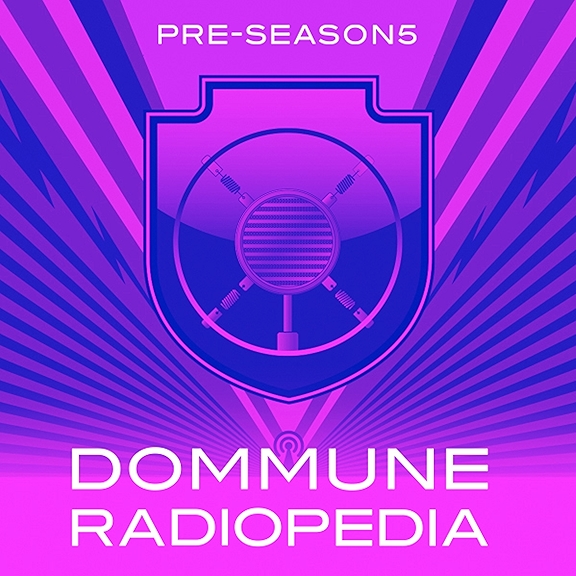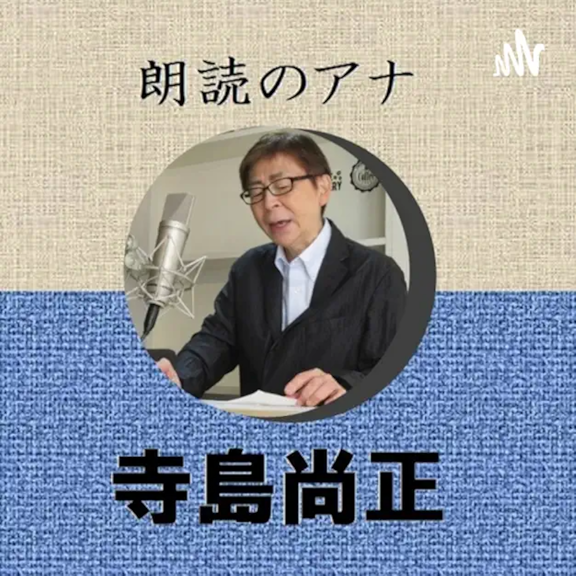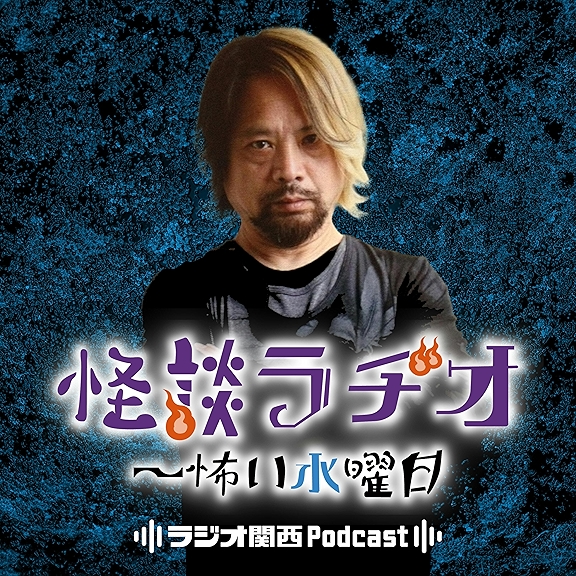
The AmWritingFantasy Podcast: Episode 43 – Getting Your Book to Sell (with Stuart Thaman)
What do you do when your book isn't selling?
What changes can you make to make your book start selling?
International bestselling author, Stuart Thaman, who works with traditional publishing companies to revive dead books that aren't selling. joins the Am Writing Fantasy podcast to share his insights.
In this episode, the how-to guide book, "How to write a fantasy book description" is mentioned.
You can find it here: https://www.jesperschmidt.com/books/how-to-write-a-fantasy-book-description/
You can find Stuart's helpful guides and articles here: http://www.stuartthamanbooks.com/marketing-series
Tune in for new episodes EVERY single Monday.
SUPPORT THE AM WRITING FANTASY PODCAST!
Please tell a fellow author about the show and visit us at Apple podcast and leave a rating and review.
Join us at www.patreon.com/AmWritingFantasy.
For as little as a dollar a month, you’ll get awesome rewards and keep the Am Writing Fantasy podcast going.
Read the full transcript below.
(Please note that it's automatically generated and while the AI is super cool, it isn't perfect. There may be misspellings or incorrect words on occasion).
Jesper (1s): Hey there. Jesper just dropping in here up at the front of the episode. I have an excellent guest host on today, but I just wanted to drop in here quickly to let you know that we had a bit of audio quality issues, the internet on my guests and is not entirely stable and at one point about 18 and a half minute in it actually drops, which means that I cannot hear him and he keeps talking for a bit while I'm also talking on top of him to hoping, hoping that he's coming back online.
So you're going to get about one and a half minute where we accidentally talk over one another. So my apologies for that. And also when it comes to his internet connection, there is a bit static on his end and uh, unfortunately I've done everything I can to try to clean it out, but, but it's not possible to get it any better than it is now, but you can hear everything he says. So I've decided to release this episode anyway, so I hope you will get a lot out of it. And the much, much apologies for the audio quality here.
Thank you.
Narrator (1m 7s): You're listening to the amwritingfantasy podcast. In today's publishing landscape, you can reach fans all over the world. Query letters are a thing of the past. You don't even need a literary agent. There is nothing standing in the way of making a living from writing join to best selling authors who have self published more than 20 books between them. Now onto the show with your hosts, Autumn Birt and Jesper Schmidt.
Jesper (1m 35s): Hello, I am Jesper and this is episode 43 of the amwritingfantasy podcast. And we are going to talk about reviving dead books. Meaning, how do you get books that doesn't sell to start selling again? And as you've noticed, the autumn is not with me today, but instead I actually have a guest host and that's Stuart Thaman whose books have reached international international bestseller status in the U S Australia and Canada. So welcome to the amwritingfantasy podcast, Stuart.
Stuart (2m 7s): Yeah, thanks for having me.
Jesper (2m 10s): And I, I actually understood, uh, from a bit of our email conversations that they just spent a bit of time in I was about to say my part of the world, well I think it was in Germany and I'm in Denmark, but it's close.
Stuart (2m 21s): Pretty close. Yeah. I was in central Germany, went to college and verts Berg, so been a decent amount of time in Europe. Oh, okay. What's bird what when Germany is, that is basically dead in the center of Germany. So it's a sort of a little bit to the East of Frankfurt. Probably the nearest a landmark, but not too far from you HC and yeah, honestly you can get anywhere from the center of the country, so it got to travel around a good amount as well. Oh, nice, nice, nice. So you were there for several years then. Yeah, for a good bit of time and really, really enjoyed it.
I love the food. I love the climate. Uh, it's just a wonderful place to live.
Jesper (2m 59s): Oh, cool. Very cool. But uh, but I think you're back in the U S now, right? Yup.
Stuart (3m 4s): So living in Kentucky, which is a in the Midwest of the United States. Yeah.
Jesper (3m 9s): Right. Okay. And actually before we get into the whole conversation about reviving dead books, which, ah, which I guess you've made a bit of a specialty out of, but before we get into that, I also noticed that you writing some lit RPG books and uh, I know that that's a, a Shaundra that has been a bit there. I don't know if we can call it hot, but, uh, I, I haven't understood that it's, it's something that, um, that is selling quite well in general, but, but it's also I think a bit of a special show to write.
So I was just wondering if you could, you know, just yeah, a bit of insights about what is lit RPG and how do you go about writing it because I think it's a bit different, isn't it?
Stuart (3m 50s): Yeah, it's a very niche, sort of a sub genre of fantasy and PSI Phi and, and really have any other genre you can sort of turn things into lit RPG. But, uh, it's been around for a while since ready. Player one came out quite some time ago, but really got big when the ready player one movie debuted a couple of years ago. And when that came out a lot of people started to get turned on the little RPG and a lot of people will call a game lit as well. And um, now the hardcore readers will, we'll put some designations between game lit and lit RPG, but typically, uh, the whole concept behind the sub genres, you have a fantasy, scifi horror world, whatever it might be, B.
But in that world there exists the sort of mechanics of an actual video games. So, um, in I've got three different lid RPG series now that have done pretty well. Uh, it's uh, definitely a hot selling Shondra at the moment. Am it's really, uh, a lot of fun to write. And being a lifelong gamer, it's sort of like writing the video game that I wish I could play. And that adds a whole new dimension to the entire writing process, which is a ton of fun, but really starting to get popular am in the past year or so, just sort of a genre that's blown up.
Jesper (5m 8s): Right? But am I right in understanding that you are actually writing out, that's for characters and stuff like that as well. Or
Stuart (5m 15s): so there'll be a stats for the characters. They'll have like strength, agility, uh, this sort of traditional stats that you would expect from a video game. They go on quests, they go on dungeon runs, they get magic gear every time they level up and you know, gain experience points they need to pick new talents and they're sort of building their, their build more or less than kind of gives you that feeling of reading someone playing a really fun video game.
Jesper (5m 41s): Right. So you're describing in the book itself what they're picking when delivering up and all that stuff. Yeah,
Stuart (5m 47s): exactly. In and why they're making that decision and, and uh, what they anticipate that decision might mean in the future. Like if I get this talent now, it should unlock these future talents. And, uh, you can really mentally envision the video game aspect of it quite well.
Jesper (6m 3s): Wow. That does different, yeah. And uh, and quite, it must also am I've never read a book like that, but it must be quite a different reading experience as well because I assume, I assume that's still a story in there, but, but a lot of it will then be broken up by these sort of well known story elements where you're just learning what skills they're picking for leveling up and stuff like that.
Stuart (6m 27s): Yeah, it's very interesting because this story in some other PGS can honestly be secondary to the progression of the game and the progression of the character through the game. Uh, just depends on which kind of lit RPG you're reading. But I got turned on to it just on a recommendation from someone they told me I should read dungeon Lord by a Hugo who ESKA and the read that and just really, really, really liked it and just thought like, this is the kind of fantasy like I could write this, this is a lot of fun. And, uh, wrote my first one and took a while to really get it good and, and to really perfect it.
But, uh, it's done really well. It's sold quite well and I'm really happy about that. So definitely a lot of fun to write. And uh, my, my first one only took me 20 days cover to cover to write it. So, um, very, very fast writing it because it was simply so much fun to do.
Jesper (7m 18s): But how, how long are, uh, is IPG novel in general? How many words is
Stuart (7m 23s): yeah, I mean typically the longer the better. So my very first one was right around 80,000 words. My, I've got two more that are coming out in November that are both over a hundred thousand words. So, um, the longer you can get them, the better. I'm just like normal, Epic fantasy people like to stay in that world as long as possible.
Jesper (7m 40s): All right. Okay. Very cool. I was just curious about that. I know it's a complete detour versus what we're going to talk about. What I was just curious. Yeah, very new
Stuart (7m 49s): stuff.
Jesper (7m 50s): Yeah. Okay. But maybe we should get on topic, uh, for the sake of the listener here as well. Um, so yeah, I previously in the past I talked to Dave Chesson who, who was, uh, who was also on this podcast a while back. Uh, he's the guy who does the publisher rocket software and uh, he mentioned Stuart that I should contact you because you have made a bit of a specialty to revive that books. Uh, and you're also doing it for traditional publishing companies as far as I understood.
But yeah, but where do we start this whole conversation about how to revive it? That book if the listener is in the situation where they have a book they published but it's just not selling.
Stuart (8m 32s): Yeah. The first thing to do is just identify the quality of the product itself, which could be pretty difficult. And it kind of requires you to step back with an unbiased eye and try not to look at the book as, Oh, this is, you know, my baby that I've worked on for so long and my projects that I've had, you know, sort of putting in my heart for so long that I really want to succeed. And the first step is just to look at the product as just a product that you're selling to consumers. Like anything else, if you ran a pizza shop or whatever, you would look at the quality of the product that you're selling and see where you can improve that.
So not every book is really, you know, ready to be revived or anything like that. I'm definitely not, there are a lot of books out there where the quality, you know, maybe it's something you wrote 10 years ago and it's just not that great. You know, if you can recognize that, it'll save you a lot of time and money and frustration. I've got books that I now call dead books where I've buried those books because the quality just wasn't that good and I'm not going to waste money trying to revive it myself. But then I've got other books that I wrote a long time ago released that did not do as well as I wanted that I have gone back and revive and then um, know working for different publishing companies.
I've done exactly that. But the first step is really, especially if you have a big catalog, identify a good candidate. So you need something with good writing, unless you really want to drop another, a couple of hundred dollars or $1,000 into the editing costs as well. But you want to make sure you have something that's got a good enough backbone essentially to where you can improve it enough and revive it and it'll actually be worth it. Um, but figuring out which book that is in your catalog, it should really be step one.
So really the thing that the strongest writing that didn't sell that, that the non-selling factor was a surprise. That's, that's probably step one for sure.
Jesper (10m 28s): Right? Yeah. And that of course makes sense. But, but the thing or the question that popped up into my mind here, when you set that is like, but it's not, I don't think necessarily that every author can recognize that themselves. So, so, you know, of course, if you're doing it for a traditional author publisher and they give you some debt books that they could, you know, Stuart can you please revive these for us? Then you can approach this SD outside opinion that that takes a look at the book and say, okay, this is not up for that, you know, this is not good enough or whatever.
Maybe that sounds a bit harsh but, but you know what I mean. Uh, but if it's the author who, who's supposed to do it on his or her own books, um, do you think that's possible to do or do you need somebody from outside to take a look?
Stuart (11m 14s): It's definitely difficult and I, I think is, I have worked a little bit as a professional editor and proofreader as well and, uh, worked in acquisitions for a publisher for quite some time, reading through manuscripts in the slush pile and that kind of thing. So I think that gives me a little advantage and a little better perspective where no, I'm not attached to even my own writing as much as someone else might be. Yeah. I, I think that's a skill that people can develop if you look at something, especially if it's been awhile since you've actually sat down to write it, uh, you'll find oftentimes, at least in my experience, that even if I love the book and the moment I was writing it and I was really, really into it, thought it going to be fantastic.
Going back and rereading it, I can look and say like, Oh, this just, you know, it's just not my best work. I've advanced as an author. I'm better than this now and this just doesn't really do it for me. Um, and I think that's a skill that people can develop. Okay. Honestly, I think there's a lot of editors out there that should be able to take a manuscript from someone if you send it and you know, maybe they charge you a hundred bucks or whatever, but just ask the editor, you know, for their outright opinions. Yeah. Do you think this is good enough for me to publish?
You know, from the stuff you've seen that you've edited, um, you know, editors, a lot of times we'll follow how well their books do that they added, you know, look at it and say, Hey, if I were to try to revive this, do you think it's worthwhile? And, and just trying to get an honest answer that way.
Jesper (12m 42s): Yeah. Yeah, I agree. Uh, and, and I think what I've often said before is that, uh, you need to be careful because what happens a lot of the time is that of course with every single book that we write, the better we become. So you see you, you need to be careful also that you, you don't step into this never ending spiral of, you know, because you can always go back and we write some older books and make them better, but you need to really ask yourself, is it worth it? Because the amount of time that you're spending rewriting is, is quite, uh, you know, it's, it's quite an investment of time to do that versus if it's just a cover that is off, you know, that's a much easier fix to, to see.
So I was just wondering, because I was thinking that if I was going to approach it, rewriting was, unless I for sure knew, of course that this is just not good enough. Then it's, it's a given obviously that you need to do that. But I was just thinking from a time investment perspective, I think that we're rewriting part would probably be the last thing I would do. I would probably try out all the other elements first or, or what
Stuart (13m 48s): yeah. If, if it's a book where you can simply pick flyer, like this is a book that needs rewritten, my recommendation would be just shelf it. And if you have that time later in the future, go for it from 90% of us. We're not gonna have that much time. So just, you know, pick a different book to try to revive. Or oftentimes I've found it's, it's even easier just to write the next one and just sort of forget about it and know leave that book as dead. But, um, really the, the best, you know, reviving the dead books is if you can go through that back catalog, maybe you've got four or five or six books that really aren't selling and just pick out, you know, find the one that has the strongest writing, the one that is the best that, you know, maybe it needs a proofread, something like that.
But it doesn't need a whole lot of work to the actual manuscript in order to get it ready to go.
Jesper (14m 39s): Right. And of course, well maybe they won't be many reviews on a day fee if it, if it is really a debt book and has always been a debt book, but, but if you do have some reviews, I think that's also a place where you could go to, to get some hints if, if it really needs another editing pass and you know, if there's complaints about too many typos and whatnot.
Stuart (14m 58s): Yeah, exactly. I definitely agree with that. Yeah. Um, but I, I was also thinking in terms of
Jesper (15m 9s): the look inside part, you know, from the Amazon, but how much attention are you, are you placing on making sure that those first, uh, I think, if I'm remember correctly, I might be a bit off on this, but I think it's 10% of the book
Stuart (15m 23s): somewhere around there at least. Yeah. So
Jesper (15m 27s): present, I think you, you can see from the look inside or the free sample on Amazon, but how much attention are you putting on making sure that those 10% are really engaging?
Stuart (15m 36s): Yeah, it's definitely a part you need to hook the reader. So not every reader of course, is even going to look in on that feature or even know that feature exists. It's definitely a part, um, and that, that some people do pay attention to. And I think a lot of other authors, we'll start there if, you know, if you've written before and you're looking for new materials to read yourself, then it's an area where we're going to look, it's gotta be, of course, you know, professional formatting. And a lot of times, like when I worked for different presses, I'll go into their material.
I'll see, okay, these books were made and you know, 2010 or 2014 and the formatting just back then wasn't as good. And they've gotten a professional format or now or whoever, there's, whoever is doing their formatting is simply gotten better. And so we just need to update this, run the manuscript through the formatting again as though it were brand new and get it updated, get it out there in the professional quality that the other more modern books are used to receiving. And, and that can be definitely a big thing, but I think just from a, okay, really from a story perspective, if you don't hook somebody in the first, you know, 10, 15 pages, if you don't get them absolutely invested, then there's so much other competition out there that readers will leave.
And especially if you're trying to sell and Kindle unlimited, you have to be even more am sort of action heavy and really, uh, punching it up well upfront or you don't really have a chance cause somebody's pinhole unlimited. I mean, they didn't pay to download your book at all. If you don't get them committed and invested in the first 10 pages, they're just going to move on to the next book on their Kindle and you've lost them. So, uh, definitely very important from a story perspective to have a really, really strong active opening that introduces, you know, one or two characters, keeps the cast small, sets up the overarching conflict well and really attaches the reader to those characters right out of the gate.
Yeah, fully agree. Um,
Jesper (17m 36s): let, let's assume for now that that people sort of, they, they have the, they have the product itself, meaning meaning the book or the writing itself is, is up to par. So, so that, that stuff is good. They have a good to hook in the beginning. Uh, if, if
Stuart (17m 50s): we assume that that is okay, then what about covers then? Yeah, so the cover of course is a huge aspect of writing and you know, we all know the old phrases of not judging books by their covers. And yet we all do it every single time we buy a book. It's the first step of marketing. It's the first thing you see when you approach a book, whether it be online on a bookshelf, and it doesn't matter. The first thing we see are first impression is always that book cover.
And a lot of times what I've seen in some of the books that I have revived is that the cover just doesn't match the genre expectation. And if you're trying to sell a, a a really, you know, intense suspense thriller and your cover just doesn't speak to me as a thriller, it could be a beautiful gorgeous cover. But if it just doesn't meat the jhana expectations of a thriller, then it's not going to sell well no matter how good the cover is.
So a lot of it is just looking at the top 100 covers in your genre or pick, you know, 10 or so competing authors that your book is most similar to, and you know, you write thrillers, look up Stephen King and Dean Koontz and look up those coppers and see what they look like. Because even if you don't like that style, that's what the reader expect. And that's what the reader wants to see because the reader is going to be coming from Dean Coons or Stephen King and they're going to be looking for more thrillers to read.
And if they see, you know, a thriller that matches what they like, they're going to buy it versus seeing a thriller that could have a gorgeous professional, extremely good cover. But if the cover to them says, Oh, this is historical or horror or fantasy, this isn't a thriller like I like, then they're never going even to reach or blurb and they're not going to get any farther than glancing at your cover and ignoring it and you lose that reader forever. And that's an area where I see a lot of authors don't make sense.
They spot on is that cover just doesn't really, really important and you have to have a cover that really explains what the show is about action and shows that it's not really about, uh, at the point in time when it comes to covers, it is not good. Me being original, which a lot of us authors can easily try to become a try to, to achieve. We tried to be so original and we try to, to make it so unique that nobody has seen this before and we believe it's, it's to be excellent, but in fact, that is not the case.
Uh, and that's not what we're looking for because readers are looking for something similar to what they used to. And by giving them a cover that that shows them that this is the younger you are getting and it's on par with or similar to two other
Jesper (20m 48s): best selling books in that younger, then that is how you are going to am to be successful from a, from a coverage perspective. Okay. So, so if that was all about covers then am I'm wondering the other element that also goes into whether another book will sell is uh, the uh, uh, book descriptions. So, so how do you or how do one yeah, consider or evaluate if once book description is good enough.
Stuart (21m 20s): Yeah, I think in book descriptions and blurbs or a synopsis, it's a lot more difficult than with covers cause converse, you can compare to some of the top selling covers in your genre and get a good idea. But blurbs are so unique to the book that it makes it a lot more difficult. But with blurbs that very easy to change, especially on the electronic format, it's extremely easy to change. You can try out a different blurb every week until you get something that you really liked. But a big mistake at least that I see with lots and lots of blurbs is authors try to just sort of tell you the plot.
Here's what my book is about. That seems logical, but it very, very rarely works. And really the goal of any sort of book blurb or synopsis is not to tell the reader what the book is going to be about, but it is to tell the reader instead why they should look at the book and what they're going to be excited about. And really what that comes down to is Shondra expectations, which is similar to the cover. And you want to just give them atmosphere and you want them to think like, Oh, this is going to be a really cool, you know, intense mystery thriller, not, Oh, this is a book about a guy who was framed for a crime and goes on the run and moves to Argentina.
It should be a book, a description that gives them just the atmosphere and sort of builds up that expectation in their head and then leaves them wanting more. Because if they, if they get the plot from the, the book description, they don't need to read the book anymore. If they just get the atmosphere and the genre expectation, then they need to read the book in order to figure out what it's about. And I think that can be a, a, a really powerful selling tool. But again, since it's so easy to just change the blurb, essentially whenever you need to pick five or six that you like and you know, test them on a, a writing group and you know, on a sub Reddit or something like that, um, test them out in a Facebook group for authors.
See what people like, pick the two or three that get the most votes, try one for a week with your marketing plan. If it works, great. If not, switch to a different one. And you can really am guess and check with them blurbs pretty easy.
Jesper (23m 41s): Yeah, absolutely. And, and, uh, it's, it's sort of like thinking about the movie trailer. I mean, of course not all movies trailers does a good job at being a trail either. But yeah, it needs to just tease to stuff. You don't have to. Yeah, exactly. You don't have to tell bots. You just, you just tease it. Uh, and, and then, yeah, as you say, I mean, fortunately enough, eh, changing the blurb is quite easy. So, uh, you can just upload a new one and see how it performs. And of course, for you, dear listener, if you're struggling with that, don't forget that, uh, I actually have a guide book called how to write a fences.
You put description so you can pick that one up and, uh, follow a step by step guide if you need some assistance on, on blurps. But, uh, but I do think blurbs are incredibly important because if people find, if, if you sort of have the writing on the control and you have the cover under control, meaning that it's sugar specific, like you talked about before, Stuart then people will then click, but then when they click and get to the book page on, for example, Amazon, then the blurb is the one that needs to close the deal, right? Yup.
Definitely. Yeah. And if you don't have that sort of them, well, you're still gonna lose out at the problem. He, I guess in, in revising these books, reviving these books as a, that was what I was trying to say is that you have, so you have quite a lot of moving parts here, right? I mean, yeah, there's a lot of different elements that could be wrong that you need to evaluate. Yeah, there are a ton of variables and it can sometimes, especially when you're looking at your own work, it can be hard to pinpoint exactly what's wrong, but Amy and I think, uh, if people really take a diligent look, it's not as hard as it seems to figure out exactly where there's room to improve.
Right? Yeah. And then, and sometimes it's probably also about of, uh, if, if you are really stuck, you know, maybe get some author friends to take a look for you or something like that. There's tons of groups out there full of authors that don't mind giving advice to everybody else. So there's, the resources exist. Yeah, absolutely. Yeah. But, but I was just thinking when I said that, I also thought of a caveat right away. I guess that's, that's the problem if you're trying to give advice and been thinking about caveats right away.
But, but the, the problem is also that sometimes the authors themselves are not the right people to justice stuff because we think as authors and, and it's difficult sometimes to put yourself in the mind of the reader because just like you said with the covers, uh, the readers are looking for, uh, something that signals to them that this is, I know what I'm getting and this is what I'm used to. They're not looking for, this is the most amazing original fats as you cover I've ever, ever seen. You know, that's not what they're looking for.
And we can get, well, I think sometimes by asking other authors, you can get into the same trap that they will tell you their author opinion. Um, and, but of course, sometimes you're going to get good advice from people who know what they're talking about. It's just a word of caution, I guess.
Stuart (26m 50s): I would agree. A lot of authors will make the same mistake as an author trying to revive their own work and then they look through it from the wrong perspective.
Jesper (26m 59s): Right. But okay, so if we have the writing we have to cover, we have the book description than, than what. What else?
Stuart (27m 7s): It really, once you've got all that your, you're pretty much ready to go. So, uh, you've, you've got everything more or less. All right. Seated correctly. Sometimes. I've actually, we've, we've changed titles on books as well, so we've had titles on that comes to mind that as probably the most successful book revival I've ever done. Um, and it, it was a really cool portal fantasy about a Japanese fighter pilot going back in time during world war II and going back to feudal Japan times and sort of becoming a sword and sorcery fantasy and that book had a cover that said historical fiction to me.
It had a title that was in Japanese and I didn't even understand it even though the book was in English and the writing, we just needed a proofread. But, uh, we changed that title to one that was very in keeping with am with sort of expectations and whatnot. The book's called samurai wind by Nigel sellers. But, uh, we, we revive that and got the new title on it, got a new cover on it and everything. And then really from there, the bulk of your work is finished and all you need to do is just find that audience and figure out where those people live.
And with a samurai themed portal fantasy with a little historical bend to it, honestly, that appeals to most fantasy readers already. That's something that a lot of fantasy readers are going to really enjoy. So all you need to do is, is, uh, then dive into your sort of traditional marketing approach. And for me that would be Facebook and Amazon ads testing key words, figuring out which keywords are getting your sales, and then am pumping really as much of your budget as you can afford into those valuable keywords until they stop working.
And then re-evaluating once those keywords fall off a little bit. But, um, once you get to the point where you've got, you know, the title, the cover, the blurb and the writing that is pretty much everything. You're, you're more or less they're ready to market it again and really rebrand the novel and get people interested in it.
Jesper (29m 12s): Yeah. Yeah, I would agree. Uh, and of course then once you are at that stage, then you have the same problem that everybody else has and that is to drive enough traffic there and, and when those bits and all that. But do you have any, any good advice when it comes to, to running some ads and getting, getting the traffic to that book that you now know it's good and you know what you're sell but you just need to get eyeballs, eyeballs on it. Do you have any advice on, on how to best go about that? Uh, the advertising part of this equation?
Stuart (29m 41s): Yeah, it's definitely marketing books is tricky. And sort of the uh, pitfall I guess of almost every author out there that I talked to am on my website on stuartthamanbooks.com I've got a whole series of free articles about marketing that go into, in a lot more detail than a, just a quick podcast. But essentially the biggest advice is if you're using pay to click or right, yeah. Pay per click ads. That's it. So if you're using those paper click ads, which I recommend you just want to sort of start with the shotgun blast and hit as much as you possibly can right out of the gate and it's going to be expensive to test and it's going to be a pretty steep learning curve.
You'll need to know what you're doing. Yeah. If you set up, you know, maybe three or 4,000 different keywords on Amazon, which am I use the publisher rocket as well, but, um, set up 4,000 keywords and run those for fast and keywords, which will be four different ads, but run them on, you know, three different ad copies and adjust your ad copy. You know, three different times, figure out which keywords are hitting. And the combination might be something that's surprising. It might be something that you don't expect and he might have, uh, you know, a key word with an ad copy that doesn't strike you as something that you would, you know, would work for you.
But again, the author's not the customer. So it's hard to think like a customer and we don't always understand the customers. Um, but really just sort of testing as much as physically possible for as long as you can to get enough data to be meaningful. Then figuring out from that data, okay, what about this makes sense and where am I actually going to make money? Um, you know, kill those keywords that are just sucking down budget with no returns. Kill those off real quick. Figure it out. The ones that, the keywords that are giving you the best bang for your buck and then put more and more into those keywords.
Or maybe try five or six different ad copies with each key word to see what works the best. And eventually, you know, might take you a month, but you'll pair it down to where you've got ads running that are going to be very profitable on either Facebook or Amazon, whatever it might be. B, you'll get ads that are, are churning out a high rate of return.
Jesper (31m 57s): Yeah. Do you uh, tend to be it high to, to, to get those, uh, basically to revive the books so to speak, in order to get to get the Amazon algorithm to pay attention to you? Do, do you tend to bid high to make sure you're winning those bits or, or do you just bit sorta Jewish sure. That you're going to get a return on investment if you win the bid. So how do you, how do, how do you go about that?
Stuart (32m 20s): It's setting is definitely difficult. I'm not gonna say I'm a master of that just yet. Honestly, in the beginning I like to set the bids higher just cause I'm, I'm kind of impatient when it comes to getting that data and figuring it out. So I'll last a lot of ads in the beginning that are going to cost a good bit of money and have pretty high bids just so I can get all that data and you know, run through my budget every single day to make sure I'm hitting it. And uh, once I get all that data, all tone it down.
And most of the time, once I have an ad that's fairly refined, I'll just send it to the Amazon recommended bid and they do like the dynamic bidding where they'll adjust it for you up to like 50% of what you put in. So I'll put maybe 50 cents in and so that'll let it adjust up to 75 cents if it needs to. And that seems to work pretty well. So you're not getting, you know, prime time bids, you're not winning those, but you're still at least, you know, winning enough bids to get a decent amount of impressions, a few thousand impressions or whatever it might be on each ad and, and that's really what you need.
But once you pare it down, I think that the bid matters maybe less and less. And it might be the case I've had a few times where reviving an old book, I've found that it wasn't any keyword that was even expensive that ends up being the winner. And it'll be something, you know, for sent keyword that nobody else is bidding on that I would've never thought in a thousand years of irrelevant. But it was something that publisher rocket pulled up in their list and I kept it in there and there it went.
And so it'll be a really cheap, a keyword, which is fantastic.
Jesper (34m 4s): Yeah, I know, I know Dave Chesson likes to share the example of, uh, of, uh, what was it? Book book book. I think that was the key word, who was using just three times the word book in a row, which makes absolutely no sense at all.
Stuart (34m 18s): Who types that in on am I don't know what they're hoping to find when they search book book book but people do apparently, and that you weren't as typically cheap so you can grab it.
Jesper (34m 30s): Yeah, yeah, indeed. Indeed. Okay. Well, I think that that is good in terms of revitalizing the book so, so you certainly need to drive the traffic there and, and all the usual stuff that we usually talk about is, is of course also relevant in the sense that, uh, if you make sure to write in series, then of course you can afford to spend a bit more on, on this, uh, book one in the series that is debt, uh, because hopefully people will now start reading through that and, and like it because you just made sure that the product itself is good and then they'll buy the other books and, and that will bring you back some revenue, meaning that you will cover some of your ads.
Exactly.
Stuart (35m 10s): Yeah.
Jesper (35m 12s): Okay. Uh, Stuart uh, is there anything else that is important to know about reviving that books, uh,
Stuart (35m 19s): that we haven't talked about? Covered just about everything? Um, I guess as a last bit of advice, I would say, uh, one of the biggest mistakes I see authors making is, is always with the cover. And just the concept is actually a line that I read I think like two or three days ago, just came up. Another author mentioned that your when you look at a cover, you should not be looking for some flawless work of art. You should consider your cover to just be your first marketing tool. And even if it's a cover that you personally don't like, if it fits in your genre, the offense, what readers want, use it.
It doesn't matter if you like it or not because the paycheck is what, what the authors in it for. So, uh, it doesn't have to be some, you know, flawless work of art. You can always make a special edition later that's going to be your flawless work of art, but you need to sell books first before we can afford that special edition.
Jesper (36m 13s): Yeah, absolutely. And you mentioned early on that, that you had some articles or blog posts or whatever that, uh, goes into some of this. So if you send me the links to that, the Stuart, then I'll add those links into the show notes. Can go and read it.
Stuart (36m 29s): Yup. Yeah. Just Stuart Thaman books is where you can find it all and we'll get those links up there.
Jesper (36m 34s): All right, perfect. Okay. Thanks so much for, for joining Stuart. Yeah, thank you. So next Monday autumn is back and we are going to talk about whether or not free books are worth it as a marketing strategy.
Narrator (36m 53s): If you like what you just heard, there's a few things you can do to support the amwritingfantasy podcast. Please tell a fellow author about the show and visit us at Apple podcast and leave a rating and review. You can also join autumn and Jesper on patrion.com/amwritingfantasy for as little as a dollar a month. You'll get awesome rewards and keep the amwritingfantasy podcast going. Stay safe out there and see you next




















